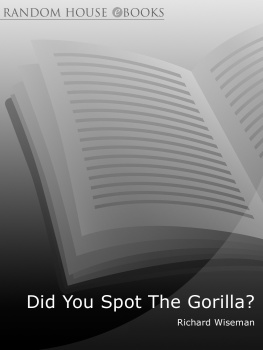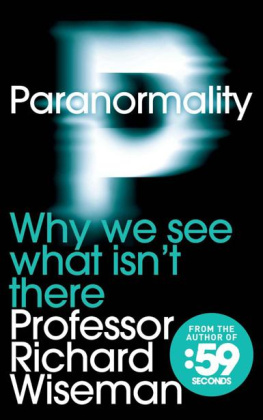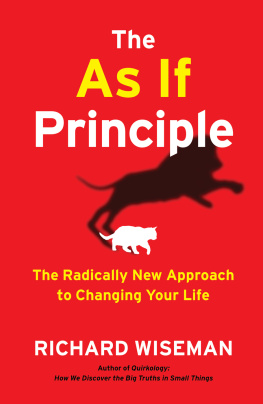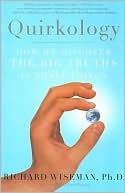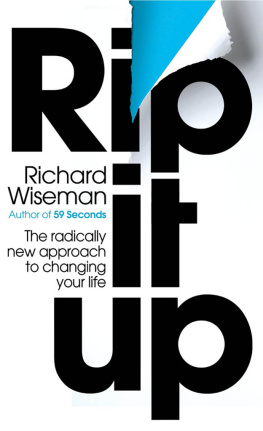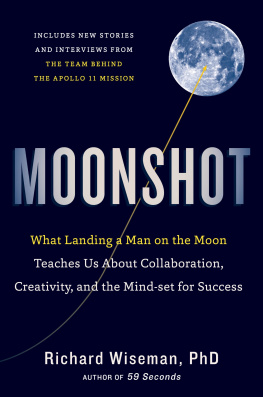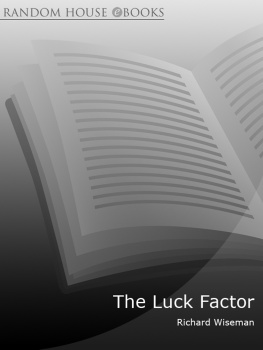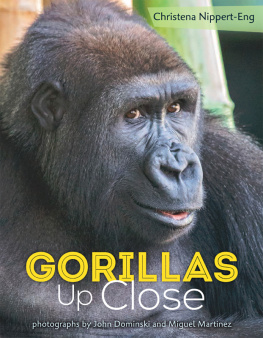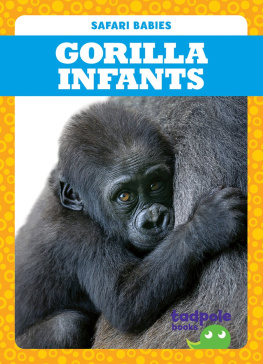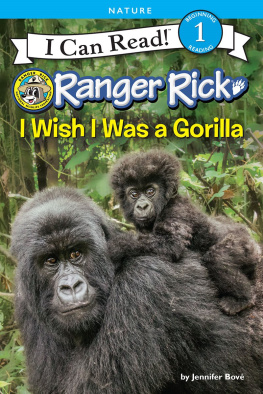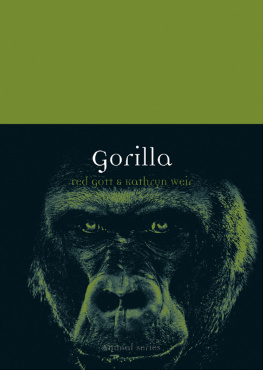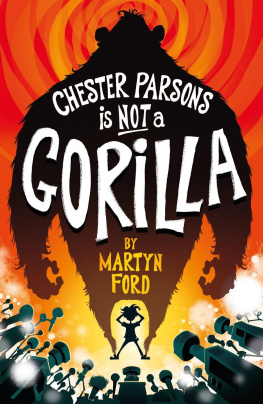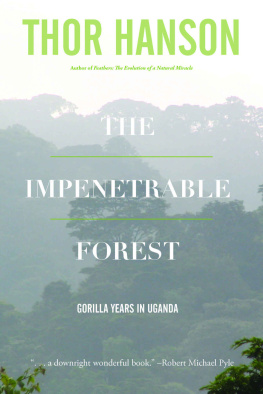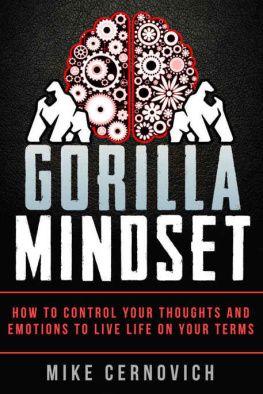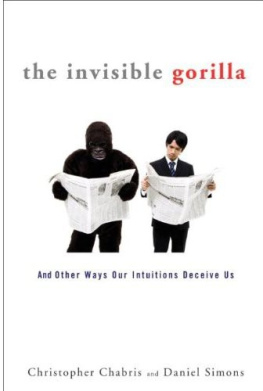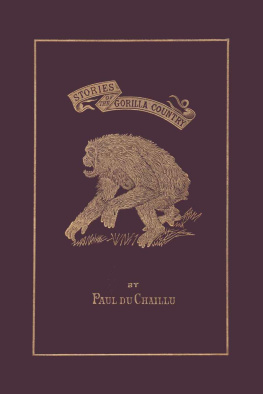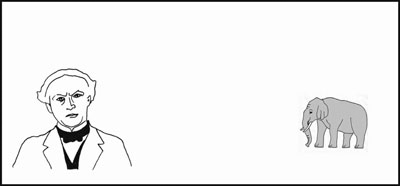Contents
Introduction
Monkey Business
Chapter One
The Primed Mind
Chapter Two
The Power of Perspective
Chapter Three
Playful Matters
Chapter Four
Time to Wake Up
Conclusion
Its a Jungle Out There
About the Book
In a recent series of ground-breaking psychological experiments, volunteers were shown a 30-second film of some people playing basketball and told to count the number of passes made with the ball. After just a few seconds, a man dressed as a gorilla slowly walked into frame, beat his chest at the camera, and sauntered off. Unbelievably, almost none of the people watching the film noticed the gorilla. Exactly the same psychological mechanisms that cause people to miss the gorilla also make them miss unexpected but vitally important opportunities in their professional and personal lives. This book outlines the scientific evidence and thinking behind this remarkable new phenomenon, and shows you how you can spot gorillas in your life and what to do when you see one.
About the Author
Professor Richard Wiseman began his working life as an award-winning professional magician and was one of the youngest members of The Magic Circle. He obtained a first class honours degree in Psychology from University College London, a doctorate in psychology from Edinburgh University, and was awarded the prestigious Perrott-Warrick Scholarship from Trinity College Cambridge. He now heads a research unit based within the Psychology Department at the University of Hertfordshire.
Professor Wisemans research has been widely reported in many of the worlds leading science journals, and he has presented his findings at numerous national and international academic conferences.
He has featured on hundreds of radio and television programmes, and feature articles about his work have appeared in The Times, the Daily Telegraph and the Guardian. He has also devised several large-scale experiments involving thousands of people. Many of these have been carried out in collaboration with the Daily Telegraph and the BBC science programme Tomorrows World.
Also by Richard Wiseman
The Luck Factor
The Little Book of Luck
To Caroline
Acknowledgements
This book would not have been possible without the wonderful guidance of my agent Patrick Walsh, and editors, Anna Cherrett, Lindsay Davies, and Nikola Scott. I am also grateful to the University of Hertfordshire for supporting this work, Emma Greening for helping with the research and to Professor Dan Simons for producing the original gorilla footage. Finally, very special thanks to Caroline Watt for providing assistance at every stage of the process, including invaluable grammatical corrections and sharp-eyed proof checking. Without you Caroline, this book simply would never have happened in its present form, for years to come.
Illustrations by DOW.
INTRODUCTION
Monkey Business
The hardest thing to do is see what is right in front of your eyes.
Johann Wolfgang von Goethe, German poet and novelist
Master magician Harry Houdini once amazed the world by making an elephant completely vanish. You are going to perform a version of this incredible illusion, right here, right now.
Take a look at the illustration . On the left is Houdini and on the right is an elephant. As you can clearly see, the elephant is in full view, and there are no suspicious-looking trap doors or mirrors.
Close your left eye, hold the book at arms length and look at Houdinis head with your right eye. Now slowly bring the book towards your face, but make sure that you keep looking at Houdinis head with your right eye. At some point, usually when the book is about a foot from your face, the elephant will suddenly vanish. It will be there one moment and gone the next. You have just made an elephant disappear into thin air. Well done. Take a bow. Unless you are reading this in a bookshop, of course, in which case demonstrate the trick to the person next to you. (Assuming that they, too, then follow this instruction, soon the whole shop will be doing it.)
This simple illusion works because each of our eyes has a blind spot a small area inside each eyeball that literally cannot see the world. Rather than tell you that there is something missing, your brain automatically fills in the gaps from the surrounding area, and wipes out whatever is in front of your eyes.
Exactly the same phenomenon applies to the way in which we see the world. Each and every one of us has psychological blind spots that can cause us to miss obvious openings, simple solutions to complex problems and opportunities that could transform our lives. This book shows you how to overcome these blind spots and see what is right in front of your eyes. Along the way, we will discover how spotting the obvious has resulted in many major developments in science, industry and business. How it led Newton to understand gravity, and Darwin to develop his theory of evolution. How it inspired Gutenberg to invent the printing press, and the Wright brothers to build the worlds first aeroplane. As well as how it helped make Henry Ford a multimillionaire and countless others to produce many of the worlds best-selling products and services. But this little book is not just about changing the world. The principles described here can be applied on a daily basis to help enhance your personal and professional life. To build business and forge new relationships. To innovate and create. To change the way in which you see yourself and others.
Four things never come back: the spoken word, the spent arrow, the past and the neglected opportunity.
OMAR IDN AL-HALIF, ARAB SCHOLAR
The ideas described in this book have their roots in my previous research into the psychology of luck. For over ten years I studied the lives of hundreds of exceptionally lucky and unlucky people, and published my findings in The Luck Factor. I discovered that some people experience far more lucky breaks and opportunities than others. Why? Because, without realising it, they are able to overcome their psychological blind spots and see obvious opportunities that most people miss.
Opportunities multiply as they are seized.
SUN TZU, CHINESE GENERAL AND AUTHOR OF THE ART OF WAR
Perhaps the strongest response to this work has been from the business community. Almost everyone has been excited by the idea of being better able to spot and take advantage of unexpected opportunities. This enthusiasm is fuelled by the fact that present-day businesses are operating in more unpredictable and competitive environments than ever before. Gone are the days when organisations could predict the future with unerring accuracy and simply assume that there would be a market for their products and services. Instead, a huge increase in the rate of change has created a far more fluid, unpredictable and challenging environment. Opportunities come and go on a daily basis. Just like Houdinis elephant, they will be there one moment and gone the next. Given this ever-changing climate, it is not surprising that businesses are eager to discover how they can gain an edge over the competition by quickly spotting, and making the most of, these opportunities. This book is a response to that wave of interest. It presents new research that builds upon my original work on luck, and describes four simple techniques that can be used to spot unexpected opportunities.
Next page
